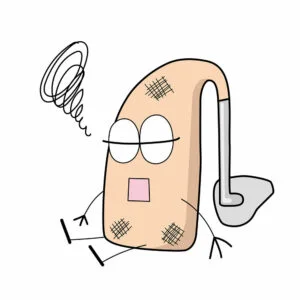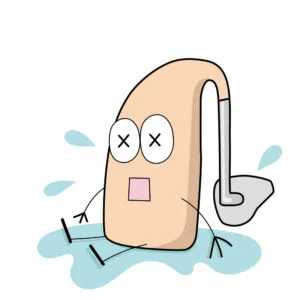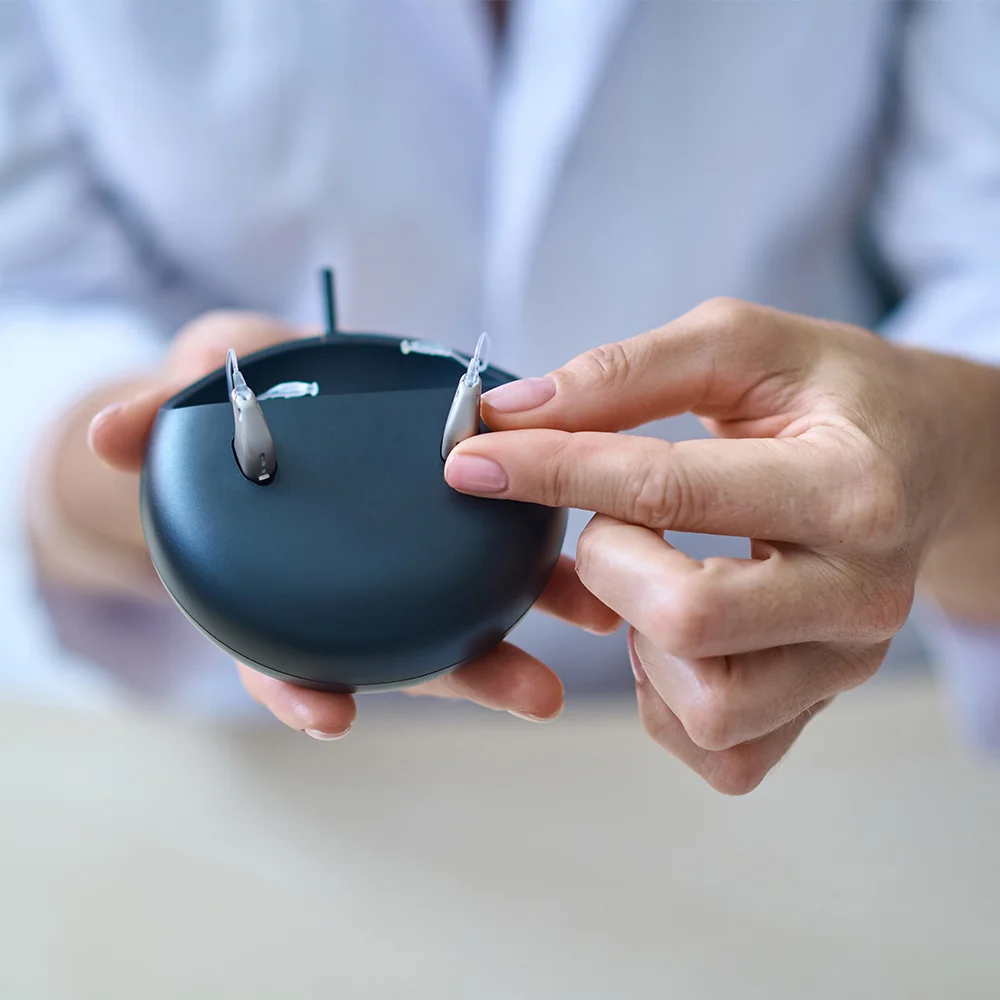Hearing aids make your day-to-day life easier and help you connect to the world and your loved ones through sound. However, they are fine-tuned pieces of technology, and their proper function can be compromised by various factors. This is why it’s important that you learn to maintain and use them properly.
This week, we’ve prepared some simple tips for you to help you ensure you get the most out of your rechargeable hearing aids:
Charging Your Hearing Aids
Make sure to charge your hearing aids every day. You can either do this during periods of time throughout the day when you’re not using the devices, or at night. Try not to let the batteries run out of power completely, as they will take longer to charge back up if you do.
Correct Handling of Fully Drained Batteries

If your batteries are running low on power or your hearing aids have turned off, do not try and get more use out of them by opening and closing the battery door! This can have an adverse effect on battery performance. Instead, either place the devices in their charger, or use disposable batteries and make sure to keep the rechargeable ones safe until you can charge them back up.
Proper Battery Storage
If for any reason your hearing aid batteries aren’t going to be used for an extended period of time (more than two weeks), make sure to take them out of the hearing aids. Ensure to store them somewhere safe where they won’t touch each other, e.g., a container with two separate sections. If you leave them inside the aids and simply leave the battery door open, this could damage the batteries.
Hearing Aid Maintenance

One of the most effective ways to prolong the life of your hearing aids is to make sure to clean them regularly, like every day before going to bed, for example. Your cleaning routine should include:
- Using a microfiber cloth to wipe the outside of your hearing aid
- Brushing over the microphone with a wax removal brush
- Blowing out any moisture that might have accumulated inside the tubing with an air puffer
Keeping Your Charger Clean
Your charger should be cleaned regularly using either a brush, or a soft, dry tissue. This will help you remove any dust and debris and clean the device’s contacts. Keep in mind that you shouldn’t use any sterilizer, rubbing alcohol, or any other type of liquid.
Keeping Moisture Away

Using a dry aid container or an electronic drying unit is a great way to protect your devices from moisture. Don’t forget to remove the rechargeable batteries before placing the hearing aids inside!
Preventing Earwax
Despite being an important part of the way our ears function and self-clean, earwax can cause various issues for your aids. In fact, it is the number one cause for hearing aids repairs. To prevent earwax build-up, gently wipe your hearing aids daily while being careful not to damage their microphones.
Protecting Your Aids from Physical Damage
Hearing aids are fine-tuned pieces of technology that are sensitive to physical damage. To keep them safe, it is a good idea to invest in a quality storage case. In addition to protecting them in case they are dropped or knocked, it will also help you easily and conveniently carry them with you wherever you go.
Using Quality Equipment to Prolong the Life of Your Aids
We at Hearing Aid Accessory offer a wide range of equipment to help you make the most of your hearing aids, including chargers, storage cases, drying boxes, and a variety of cleaning products. Click the button below to browse our shop!

